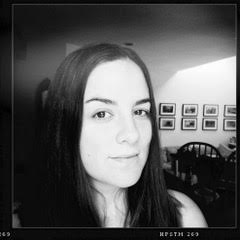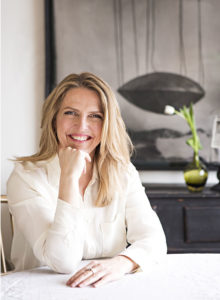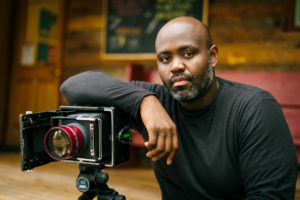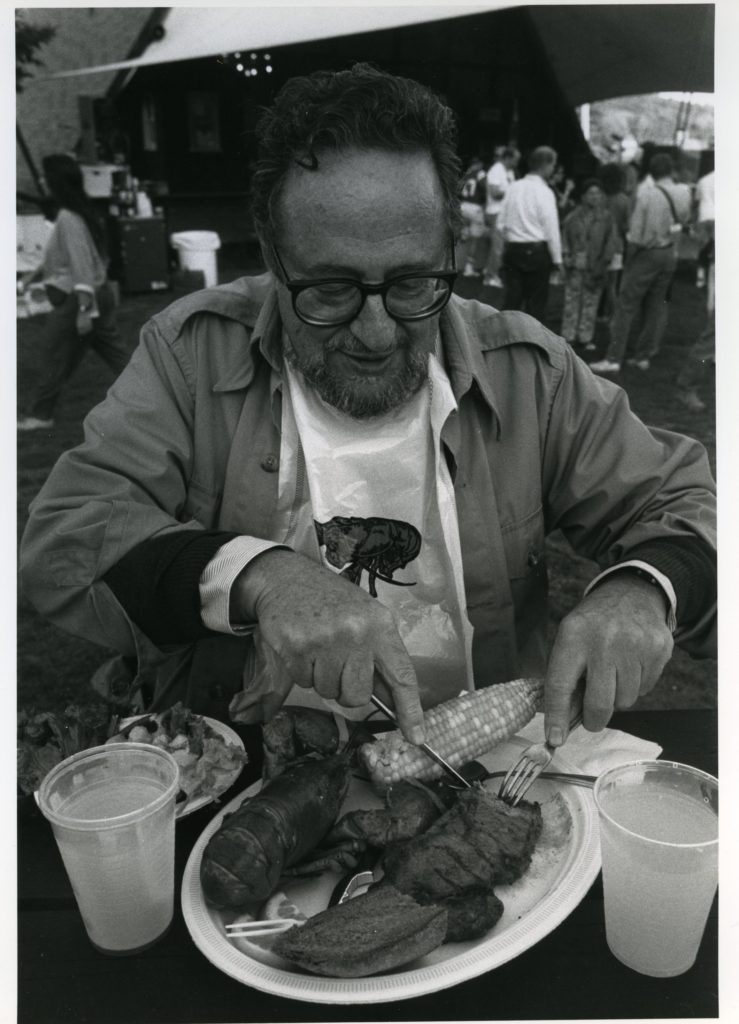The Arnold Newman Prize For New Directions in Photographic Portraiture
About the Prize
The Arnold Newman Prize for New Directions in Photographic Portraiture is a $20,000 prize awarded annually to a photographer whose work demonstrates a compelling new vision in photographic portraiture. In addition to the winner, the jury selects three finalists each year who are invited to participate in an exhibit at the Griffin Museum of Photography.
The Prize is generously funded by the Arnold & Augusta Newman Foundation and proudly administered by Maine Media Workshops + College. The Griffin Museum of Photography hosts the annual exhibition of work by the winner and three finalists each October.
Register your interest below and we will let you know when the 2024 Arnold Newman Prize call for entries is open:
By submitting this form, you are consenting to receive marketing emails from: . You can revoke your consent to receive emails at any time by using the SafeUnsubscribe® link, found at the bottom of every email. Emails are serviced by Constant Contact
The jurors will select a Top Ten from all submissions, to be announced in early August. From the Top Ten, the jurors will select one (1) winner and three (3) finalists for the 2022 Arnold Newman Prize. The Top Ten will be announced and published on the Maine Media Workshops + College website.
The winner will receive $20,000. This prize is unrestricted and may be used however the winning artist wishes. Each of the three finalists will receive a $250 stipend to help cover expenses related to participating in the exhibition. The winner and three finalists will be officially announced in August 2022 and their work will be featured in an exhibit at the Griffin Museum of Photography in Winchester, MA from October 4 to 30, 2022, with an opening reception on October 6. Artists will be responsible for shipping framed (or otherwise exhibition ready) work to/from the Griffin. In the event it is not possible to hold the awards and exhibition in person, due to impacts of COVID – 19, the awards will be held in a virtual event, and exhibited in an online format.
The jurors for the 2022 Prize are:
 Adriana Letorney is the Founder & CEO of Visura.co, a startup that is re-envisioning the future of work and marketplace for visual content in media and journalism.
Adriana Letorney is the Founder & CEO of Visura.co, a startup that is re-envisioning the future of work and marketplace for visual content in media and journalism.
She is also Co-founder at Scout Film Festival, a 501c3 non-profit organization that celebrates, connects, and empowers filmmakers worldwide aged 24 and under.
Currently, she is an NYU Female Founder Fellow and Founder in Residence at the NYU Entrepreneurial Institute’s Leslie eLab.
As a writer, she has contributed to numerous publications, including The New York Times, and Huffington Post. As a juror, nominator, and/or reviewer, she has served for the Alexia Grant at the University of Syracuse, World Press Photo, Prix Pictet, CPOY, The New York Portfolio Review (2011-present), Northern Course Short, New York Photo Awards, The Google Photography Prize, Photoville’s ‘The Fence’, amongst many others.
Adriana has been a panelist and guest lecturer at the Fashion Institute of Technology, Missouri School of Journalism, The S. I. Newhouse School of Public Communications at Syracuse University, Photo Plus Expo, The School of Visual Arts, and The New School in NY.
Numerous publications have highlighted her career, including The San Francisco Chronicle, The New York Times, PDN, NY Daily News, The Daring Magazine, SevenDays, amongst others.
 Ellen K. Willas (Born in Hammerfest, Norway 1967) is a Norwegian curator and art dealer based in Stockholm. Ellen K has served as juror on photo competitions such as LensCulture, Fotografi Portfolio Award, Gullsnitt and The Photographers Giving Back Award. She acted as artistic director of Risør Fotofestival in Norway. Between 2012 – 2021, Willas curated museum exhibitions in collaboration with Fotografiska in Stockholm and Tallinn for artists such as Roger Ballen, Sally Mann, Joyce Tenneson and Arno Rafael Minkkinen.
Ellen K. Willas (Born in Hammerfest, Norway 1967) is a Norwegian curator and art dealer based in Stockholm. Ellen K has served as juror on photo competitions such as LensCulture, Fotografi Portfolio Award, Gullsnitt and The Photographers Giving Back Award. She acted as artistic director of Risør Fotofestival in Norway. Between 2012 – 2021, Willas curated museum exhibitions in collaboration with Fotografiska in Stockholm and Tallinn for artists such as Roger Ballen, Sally Mann, Joyce Tenneson and Arno Rafael Minkkinen.
She founded WILLAS contemporary in Oslo in 2015. The Gallery was rated top 3 among Norwegian galleries and museums and presents museum-like solo exhibitions with artists mentioned above + Jeff Cowen, Jimmy Nelson, Helene Schmitz and Nick Brandt to name a few. WILLAS contemporary later transformed into showrooms in Oslo and Stockholm, and now participates in art fairs and pop up exhibitions.
During the pandemic, Willas initiated and facilitated the benefit auction 20 21 Artists in Support of Human Rights Watch in 2021 : 41 works from established and emerging artists commenting on the current state of the world were auctioned on ARTSY. A truly global, diverse group of artists deployed a variety of mediums, including photography, textile, sculpture, and more.

Rashod Taylor (b.1985) is a contemporary photographer whose work is a window into the Black American experience. Taylor attended Murray State University and earned a bachelor’s degree in Art with a specialization in Fine Art Photography. Most recently his work was acquired by the Museum of Fine Arts Houston for his series Little Black Boy. He is also the 2021 recipient of the Arnold Newman Prize For New Directions in Photographic Portraiture. Taylor is working on a series, Little Black Boy. He documents his son’s life and his own anxieties of fatherhood in the face of a society confronting enduring prejudice, injustice, and racism. In this ongoing longform project, Taylor addresses themes of family, race, culture and legacy through portraiture.
Large and medium format process favored by the Artist is a contentious nod to the gravity of content and intention of frame. This format also disarms subjects by slowing time and heightens tension by raising intimacy.
Taylor’s editorial clients include National Geographic, Essence Magazine, ProPublica, Buzzfeed News, among others. His work has also been featured in CNN, The Atlantic, FeatureShoot and Lenscratch.
Rashod Taylor lives in Springfield MO, with his wife and son. Rashod was the winner of the 2021 Arnold Newman Prize.
The Mission
Arnold Newman had an insatiable fascination with people and the physical world around him. In his work, he constantly explored the boundaries of portraiture and embodied the spirit of artistic innovation. He was also a passionate teacher–he taught at Maine Media Workshops + College every summer for over 30 years. In honor of Arnold’s legacy as both a photographer and mentor, The Arnold Newman Prize for New Directions in Photographic Portraiture recognizes excellence in a new generation of photographers by awarding $20,000 to a winning photographer and elevating the work of the winner and three finalists in press and through an exhibition at the Griffin Museum of Photography. The prize, the second largest in the United States, is designed to assist the winner in continuing the pursuit of their work and to serve as a launching pad for the next phase of their careers.
History of the Prize
The prize was established in 2009 by the Arnold and Augusta Newman Foundation. Maine Media Workshops + College has proudly administered the prize since 2016. Beginning with the 2017 prize, three finalists are selected each year in addition to the winner. Maine Media partnered with the Griffin Museum of Photography in 2018 to host the awards ceremony and an annual exhibition of work by the winner and finalists.
Since 2009, 12 artists have been awarded the prize:
- 2010: Emily Schiffer
- 2011: Jason Larkin
- 2012: Steven Laxton
- 2013: Wayne Lawrence
- 2014: Ilona Szwarc
- 2015: Nancy Borowick
- 2016: Sian Davey
- 2017: Daniella Zalcman [Finalists: Sophie Barbasch, Daniel Coburn, Jessica Eve Rattner]
- 2018: Viktoria Sorochinski [Finalists: Juul Kraijer, Francesco Pergolesi, Donna Pinckley]
- 2019: Louie Palu [Finalist: Jess T. Duggan, Cheryle St. Onge, Bryan Thomas]
- 2020: Jon Henry [Finalists: Michael Darough, Priya Kambli, Rubén Salgado]
- 2021: Rashod Taylor [Finalists: Golden, Christian K Lee, Donavon Smallwood]
ARNOLD NEWMAN AND MAINE MEDIA WORKSHOPS
 Arnold Newman began his relationship with Maine in the late 1970’s, traveling from his home in New York City each summer to join a host of other renowned photographers in Rockport, who were teaching at the Maine Photographic Workshops, now known as Maine Media Workshops. For Arnold, Maine was a place of inspiration and rejuvenation and the Workshops a place to see old friends, be immersed in photography and share his work and experiences through teaching. He never came to Maine for just his workshop; it was always a longer stay. For more than thirty years, Arnold and his wife Augusta were vital influences among the Workshops community.
Arnold Newman began his relationship with Maine in the late 1970’s, traveling from his home in New York City each summer to join a host of other renowned photographers in Rockport, who were teaching at the Maine Photographic Workshops, now known as Maine Media Workshops. For Arnold, Maine was a place of inspiration and rejuvenation and the Workshops a place to see old friends, be immersed in photography and share his work and experiences through teaching. He never came to Maine for just his workshop; it was always a longer stay. For more than thirty years, Arnold and his wife Augusta were vital influences among the Workshops community.
I first met Arnold at the Workshops in the summer of 1990. On a hot summer night, I sat in the crowded Union Hall Theater to listen to his lecture, and see the images illustrating his long and extraordinary life as a photographer. It was a lecture he would give every year, and each year, he would begin by asking the young photographers in the audience if they knew of the notable subjects in his photographs – always imploring that we must know our history, telling his audience, “we learn from the past.”
It would be a very long lecture. Arnold loved to tell stories. His stories are pretty hard to beat – how many people can share with you their personal account of photographing the man responsible for curing polio or, every President since Truman? Photographing Otto Frank, the father of Anne Frank, on the day the Anne Frank House opened to the public or nearly every artist of note in the 20th century? About spending a day with Picasso? Being with Arnold was like being with a walking, talking history book.
I, like so many others in that crowded Union Hall Theater for Arnold’s slide show, was captivated by the way each image appeared to emerge from the innermost essence of the sitter. These were not ordinary pictures of people. Rather, they evinced the spirits of individuals engaged in their various pursuits, their innermost psyches, and their most honest moments. He has provided the world some of the most memorably significant and truest depictions of important figures in the areas of politics, sciences, and of course, the arts. For many admirers of these subjects, Arnold’s are the quintessential images.
During his extended visits to the Workshops, Arnold would act as an unofficial artist in residence. Many would enjoy the company of Arnold and Augusta for meals under the dining tent, where Arnold would regale his listeners with yet more stories. After all, he had a lifetime of extraordinary experiences to share! Frequently, Arnold would ask young photographers to come sit with him and would ask to see their work. On more than one occasion, one of those informal portfolio reviews launched the career of a now well regarded photographer.
Arnold was always a teacher, when he was in the classroom, delivering a lecture, or even just sharing a meal. To learn from Arnold, was to learn from a great master of craft, a visionary photographer and genuinely learned man. He helped many understand, in a most profound way, what it is to be an artist. I am now a teacher. My students know that I do so love to tell “Arnold” stories, stories of my time working with him and to recount his many stories as a way to teach history. To a great extent, it was through these stories that I learned.
The life and work of Arnold Newman have had a tremendous impact on the world, on those who know him only through his photographs as well as on those who have had the great fortune to know him personally. He shared with the world his keen observations of the great figures in our history; now, he is a part of that history, and an indelible part of the history of the Workshops.
~ Elizabeth Thomsen Greenberg, Rockport

